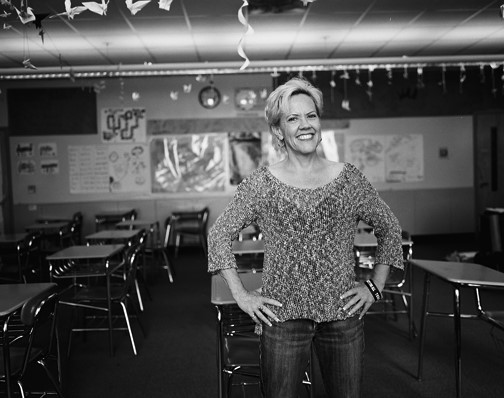LGBTQ history ‘Unerased’
February 28th, 2017 | Careers, SIT Graduate Institute
It was the most superior educational experience I’d ever had. What I learned at SIT translated into so many aspects of what I did.
Alumna Debra Fowler teaches the ‘erased’ history of the LGBTQ community

In 1986, when Debra Fowler filled out paperwork to join the U.S. Army, she came to a question asking if she was a homosexual. She checked no.
“I knew it was a lie,” she says, “but a small lie.”
Debra became a Korean language specialist. Eventually her orders required top-secret clearance, which involves an in-depth look at someone’s background. When it came to light that she’d dated a woman, Debra ended up with a dishonorable discharge—something which, it bears noting, wouldn’t happen today. She never got to that top-secret job.
Debra is not alone in having her accomplishments thwarted or unrecognized because of her sexuality. It’s history that has long been invisible, “erased.” Making the unsung stories and contributions of the LGBTQ community a part of classroom conversation is the work of History UnErased (HUE), the organization Debra co-founded with Miriam Morgenstern in 2013.
Debra is well-qualified to do that work, not only as a gay woman, but also an SIT-trained educator.
In 2001, Debra ended up back in South Korea where she taught English. “When I began teaching, I realized that’s what I was meant to do,” she says.
When she wanted to advance her education, she came to SIT Graduate Institute. She attended the low-residency master’s degree program in TESOL starting in 2002. “It was profound being there on the hill with my classmates,” Debra says. “It was the most superior educational experience I’d ever had. What I learned at SIT translated into so many aspects of what I did.”
After she received her degree, Debra taught English at Lowell High School in Lowell, Mass, where many of her students were refugees.
When she was asked to develop and teach the school’s first gender and identity course, Debra incorporated some of the material that’s now central to HUE. That was a particularly interesting endeavor in Lowell, thanks in part to the many refugee students. “In any Lowell High School class,” she explains, “you might have 17 countries represented.”
She began with examples of “erased” LGBTQ history from America’s recent past, including the “Lavender Scare” of the 1950s, an effort to remove gay employees from the federal government.
The response she got from students? “Most of them had an initial visceral response of anger—anger that they were just learning about these things for first time.”
She knew it was important work, but the response of one young Iraqi refugee brought home just how big a difference it could make. He told her, “Everyone in the world needs to learn about this. This can change the world.”
Debra quit teaching to work full-time with HUE. The organization pursues a grassroots model, bringing its curriculum to school boards across Massachusetts, and eventually, Debra hopes, much farther afield.
“We are the only professional organization in the nation doing this,” she says. HUE’s goal is, in the end, to “reimagine equality in the classroom, the culture, and consciousness.”
What she learned at SIT, Debra says, is still part of her approach. She thinks particularly of The Silent Way, the student-centered language teaching method developed by Shakti Gattegno.
“Just this morning, I was thinking about interactions with other people, and the idea of having quiet space for self-correction, allowing space for people to reflect upon themselves,” Debra says. “It’s a grand metaphor for what we’re doing—presenting this material in a quiet way, with gentleness.”
Learning about teaching at SIT, she says, “spoke to me so deeply at the core of who I am. It was so deeply entrenched in social justice. That’s SIT—social justice through education. That’s where human rights can flourish: in the classroom.”
